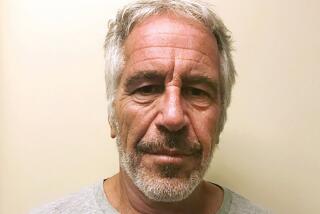Securing Baghdad is a numbers game
THE INAUGURATION of a coalition government suggests that the situation in Iraq is not as gloomy as some opponents of the war claim. But the aftermath also shows that the situation is not as sunny as some supporters of the war believe.
At least 30 people were killed in a series of bombings and shootings in Baghdad on Sunday; many more were injured. By Baghdad standards, that was not an exceptional day. But in just about any other city on the planet, it would be off the charts. By way of comparison, Los Angeles County (population 10 million) averaged 1.4 homicides a day in 2005.
Supporters of the war note that much of the violence in Iraq is confined to four of 18 provinces. True. But you can’t ignore the continuing instability in the capital. Baghdad is much more important to Iraq than Washington is to the United States. With at least 6 million residents, it has a quarter of the country’s population, and it is not only the political capital but the center of media, business and culture.
That’s why anyone who cares about the future of Iraq should be alarmed by the postings of a pro-democracy Iraqi blogger named Alaa at messopotamian.blogspot.com. “The situation in Baghdad is deteriorating from day to day,” he writes. “Very soon, if this situation continues like this, the city is going to be brought to a complete standstill and paralysis.... Whole sections of the city have virtually fallen to gangs and terrorists.”
Omar Fadhil, another pro-democracy resident of Baghdad who blogs at iraqthemodel.blogspot.com, pleads for security forces to do more to bring the capital under control. He suggests doing “intense cordon and search operations,” neighborhood by neighborhood, and setting up “tough checkpoints” on every road leading in and out of the city to “inspect each and every passenger and vehicle” until “all of Baghdad becomes secure.”
Fadhil’s idea is straight from the classic counterinsurgency playbook. This kind of “clear and hold” strategy has succeeded in countless countries, most recently in Iraq, where a variant was used last year by the 3rd Armored Cavalry Regiment to pacify Tall Afar, a Sunni city in western Iraq. What worked in Tall Afar could work in Baghdad -- if the American and Iraqi governments were to provide more troops.
The pacification of Tall Afar, a town of at least 150,000, required 3,800 American and 5,000 Iraqi soldiers. That’s a ratio of one American per 40 civilians. In Baghdad, there are currently three American combat brigades, or about 8,600 troops. That’s a ratio of one American per 698 civilians. No wonder the capital is so unsafe.
Even if you add in Iraqi security forces -- about 9,000 Iraqi soldiers and 12,000 national police officers are deployed in Baghdad -- there is still a woeful shortage of security. The problem is compounded by the fact that many of the uniformed Iraqis belong to political militias, criminal gangs or insurgent groups. Residents don’t know whom to trust.
TO GAIN control of the situation, an American officer who has served in Baghdad suggested to me the need to deploy at least 35,000 U.S. troops (six brigade combat teams, plus support personnel), two Iraqi army divisions (20,000 men), and 30,000 competent Iraqi police officers. That would give you a total of 85,000 security personnel, or one per 71 inhabitants -- still lower than the ratio in Tall Afar but much higher than it is today.
Although the U.S. Army and Marine Corps are badly overstretched (they should have been enlarged years ago), they could still provide at least three more brigades for Baghdad. But the odds of that happening are slim. Since U.S. troops entered Baghdad in April 2003, the primary imperative of Secretary of Defense Donald H. Rumsfeld and his senior generals has been not to win the war but to minimize U.S. troop presence. There are legitimate reasons for not being heavy-handed, but the upshot is that there are enough American troops in Iraq (130,000) to aggravate the locals but not enough to restore law and order.
On those few occasions when troop levels have been temporarily increased (around election time), there has been an improvement in safety. But Rumsfeld seems determined to ignore this lesson. Unless the administration rethinks its dogmatic aversion to more boots on the ground, the new Iraqi government will be hard put to protect its people.
More to Read
Start your day right
Sign up for Essential California for news, features and recommendations from the L.A. Times and beyond in your inbox six days a week.
You may occasionally receive promotional content from the Los Angeles Times.






